Are you looking to streamline your software licensing process? Navigating the complexities of software agreements can be daunting, but a well-crafted proposal can make all the difference. In this article, we'll explore essential components of an effective software licensing proposal, ensuring that your pitch stands out to potential clients. Ready to enhance your understanding and boost your chances of success? Let's dive in!
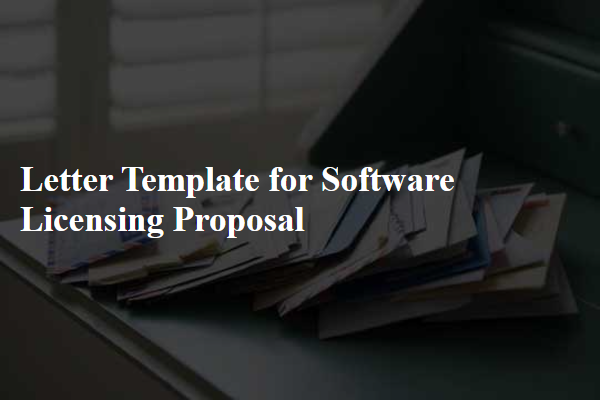
Clear Proposal Introduction
Software licensing agreements provide essential framework for the legal use of computer programs, typically including terms that dictate user rights, restrictions, and obligations. Various types of licenses, such as proprietary and open-source, dictate how software can be used, modified, and distributed. Successful proposals require clarity and specificity, identifying the specific software (like Windows 11 or Adobe Creative Cloud), the intended audience (enterprises, educational institutions), and proposed licensing terms, which can range from perpetual licenses to subscription models. Additional considerations include service level agreements (SLAs) detailing technical support and maintenance, alongside pricing structures influenced by user volume or organizational size. Clear, concise language enhances understanding, fostering positive engagement and collaboration between parties involved.
Detailed Scope of Licensing
A well-crafted software licensing proposal contains a detailed scope that outlines the usage rights, limitations, and obligations associated with the licensed software. The licensing terms can specify user types such as enterprise, individual, or academic institutions, with a focus on key metrics like the number of users or devices allowed under the agreement. Moreover, it is essential to define the geographical boundaries for usage, whether localized to specific countries like the United States or global access. Duration of the license also plays a significant role, indicating whether the agreement is valid for a fixed term (e.g., one year) or on a perpetual basis. Additionally, considerations such as support and maintenance services, upgrade paths, and penalties for unauthorized use should be explicitly documented to ensure both parties maintain a clear understanding of their rights and responsibilities. Compliance requirements, including adherence to data protection regulations such as GDPR for European users, are crucial elements that underline the legal framework of the proposal.
Pricing and Payment Terms
A software licensing proposal outlines the pricing structure and payment terms for acquiring a software solution, such as business management tools or customer relationship management (CRM) systems. Pricing models often include options like one-time payments, recurring subscriptions, or tiered packages based on user volume and feature access. Payment terms typically detail the schedule for payments, which can span across monthly or annual intervals, as well as any upfront deposits. Additional considerations include discounts for long-term commitments, penalties for late payments, and provisions for contract renewals or adjustments. Clarifying these financial aspects ensures mutual understanding and fosters a trustworthy business relationship.
Software Updates and Support
Software licensing agreements often include provisions for software updates and support, essential for maintaining the functionality and security of applications. Regular updates introduce new features, bug fixes, and enhanced security protocols, addressing vulnerabilities that may arise in popular software systems like Windows or macOS. For instance, major releases from companies such as Microsoft often include cumulative updates that resolve previously identified issues. Support services entail technical assistance provided by professionals who can help troubleshoot problems, optimize software performance, and ensure seamless integration with existing systems. This includes remote support services available 24/7, as well as scheduled maintenance checks to prevent downtime. Overall, a comprehensive proposal for software licensing should underscore the importance of both continuous updates and reliable support to leverage the full potential of the software.
Legal Terms and Compliance
In a software licensing proposal, legal terms and compliance play a crucial role in defining the rights and responsibilities of both parties involved. Licensing agreements outline the scope of use, such as whether the software (for example, Enterprise Resource Planning software) is meant for single-user access or multi-user deployment across organizational networks. Terms may include duration limits, like a one-year or permanent license, and specific geographic regions, like North America or Europe, where the software can be used. Compliance clauses ensure adherence to laws such as the General Data Protection Regulation (GDPR) for privacy standards or the Digital Millennium Copyright Act (DMCA) for copyright protection. Termination conditions outline circumstances that may lead to license cancellation, such as non-payment or violation of usage terms. Additionally, liability limitations may restrict financial responsibility for issues arising from software malfunctions or data breaches, emphasizing the importance of clearly defined parameters to protect both the software provider and the licensee.

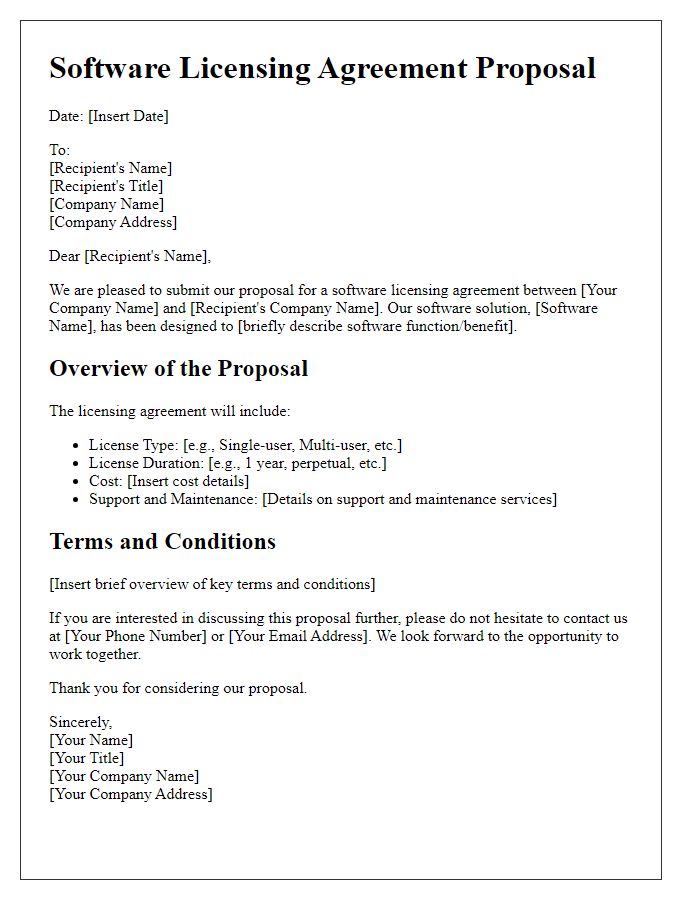
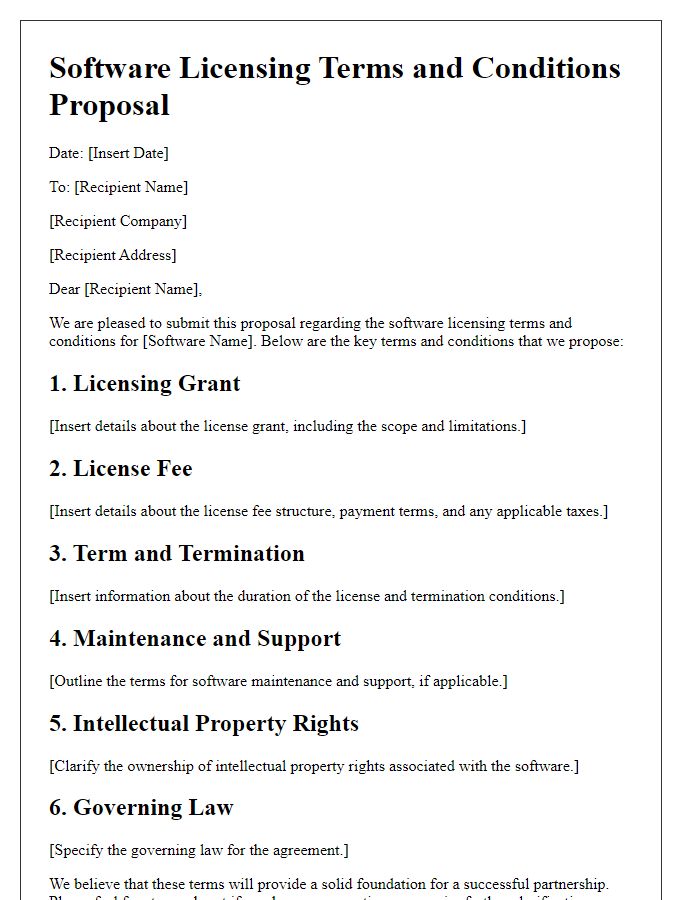
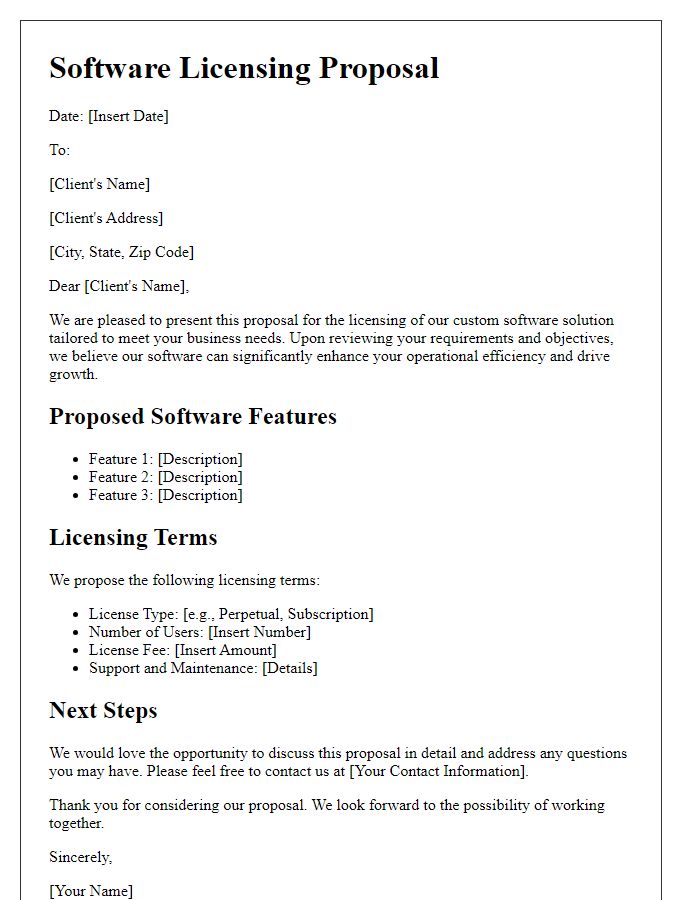
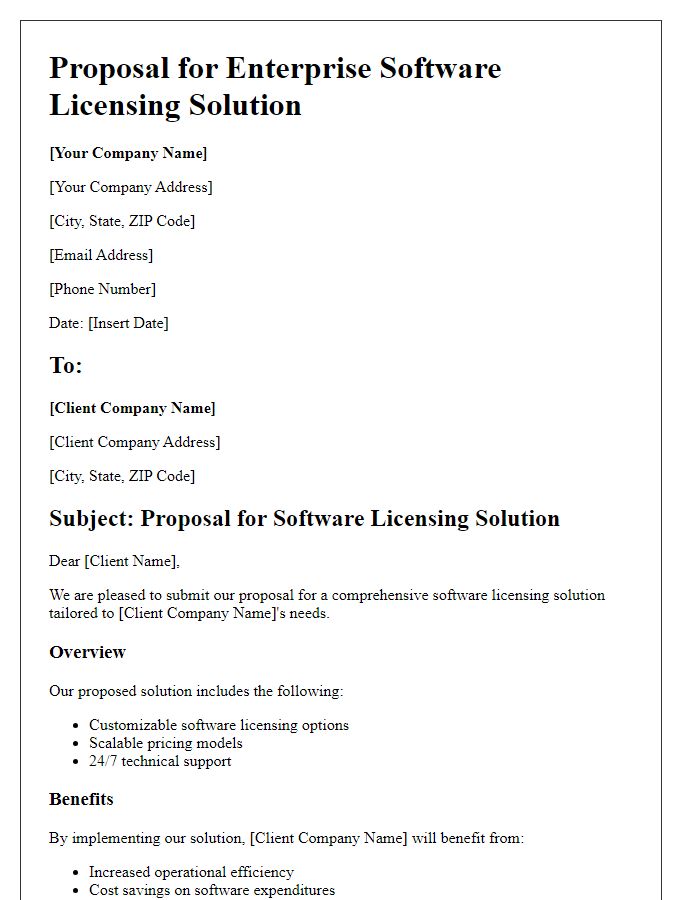
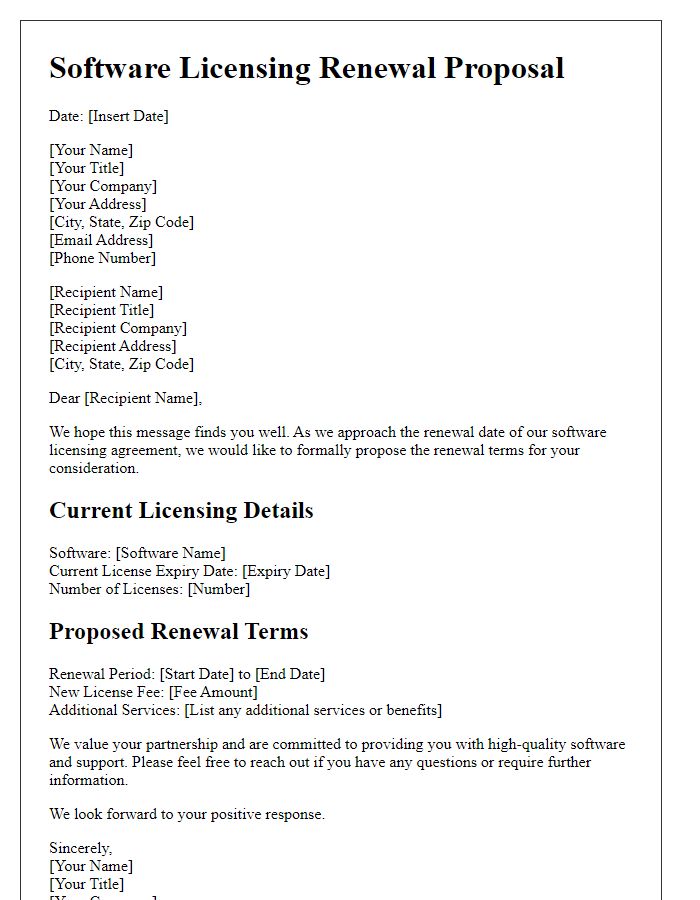
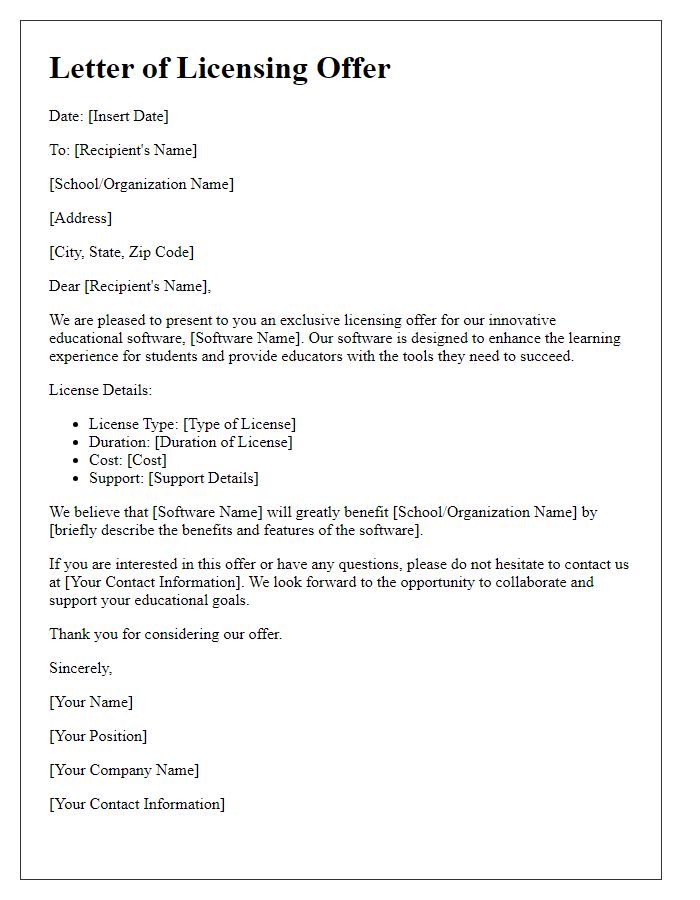
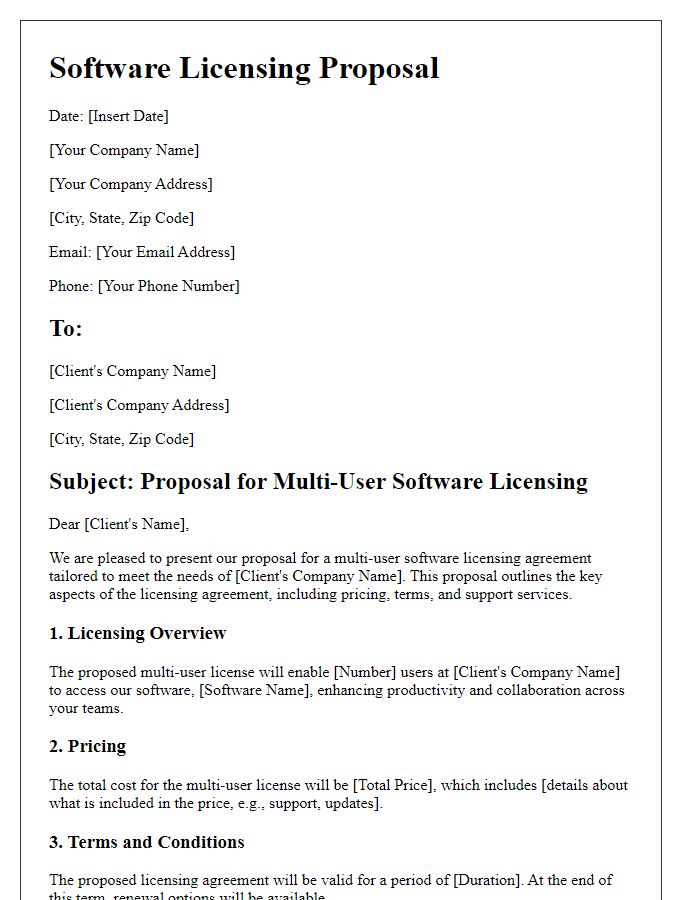
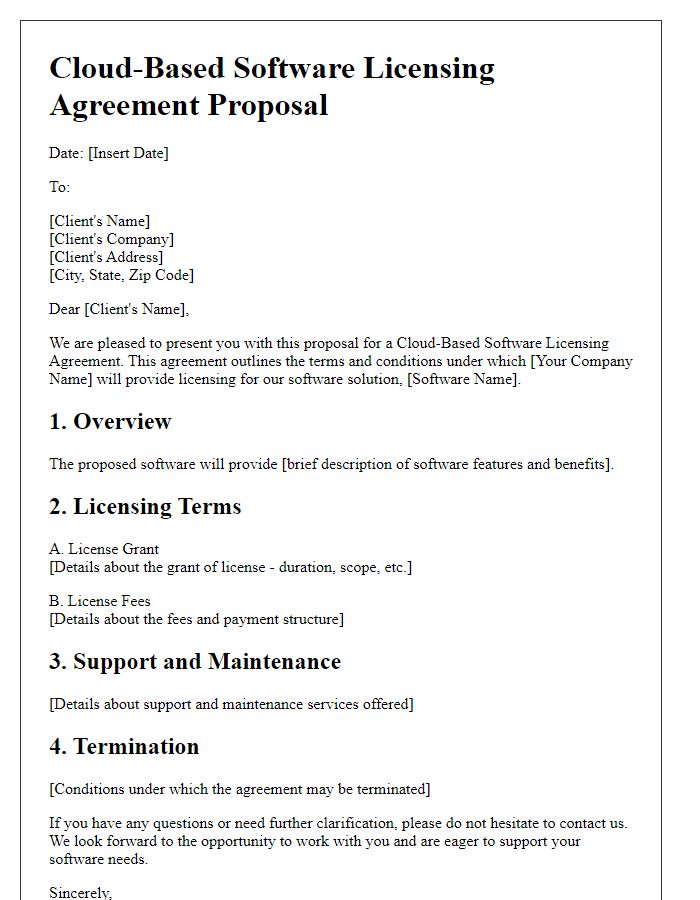
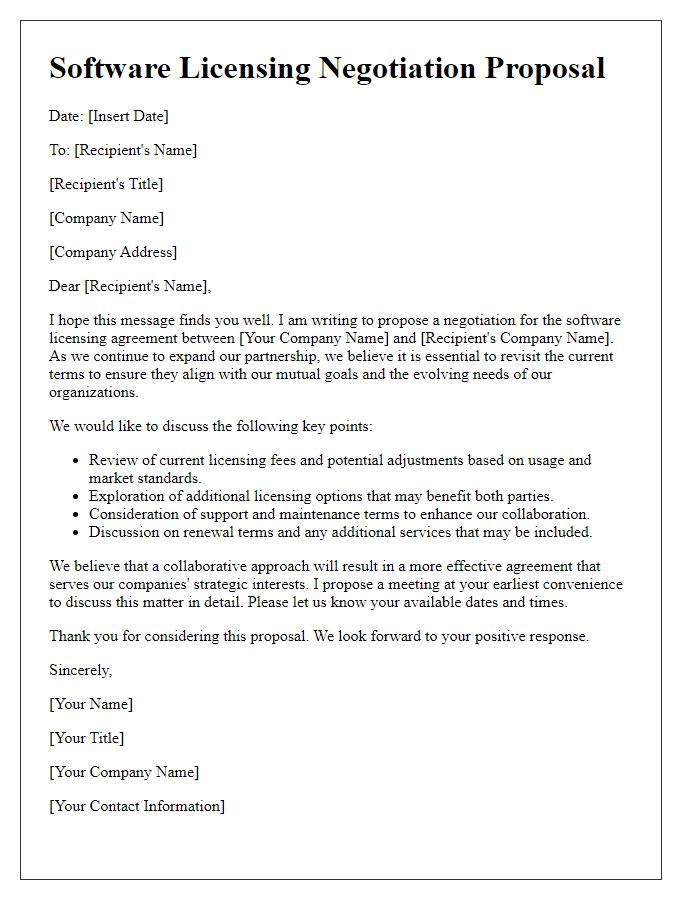
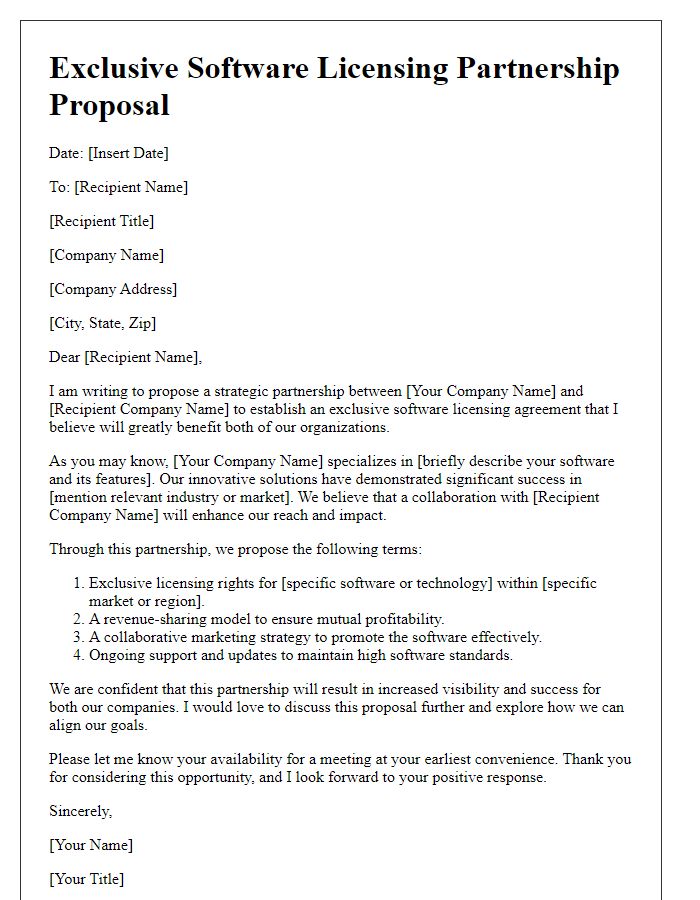

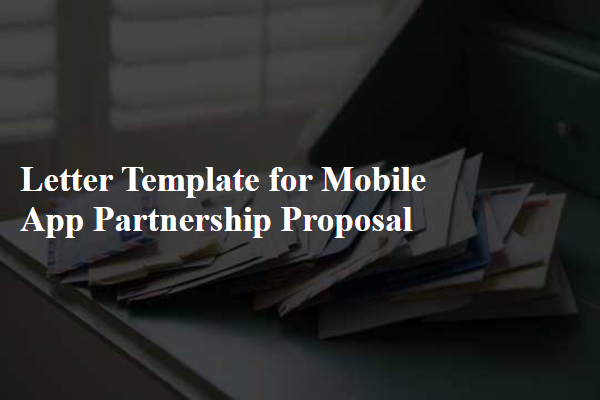
Comments